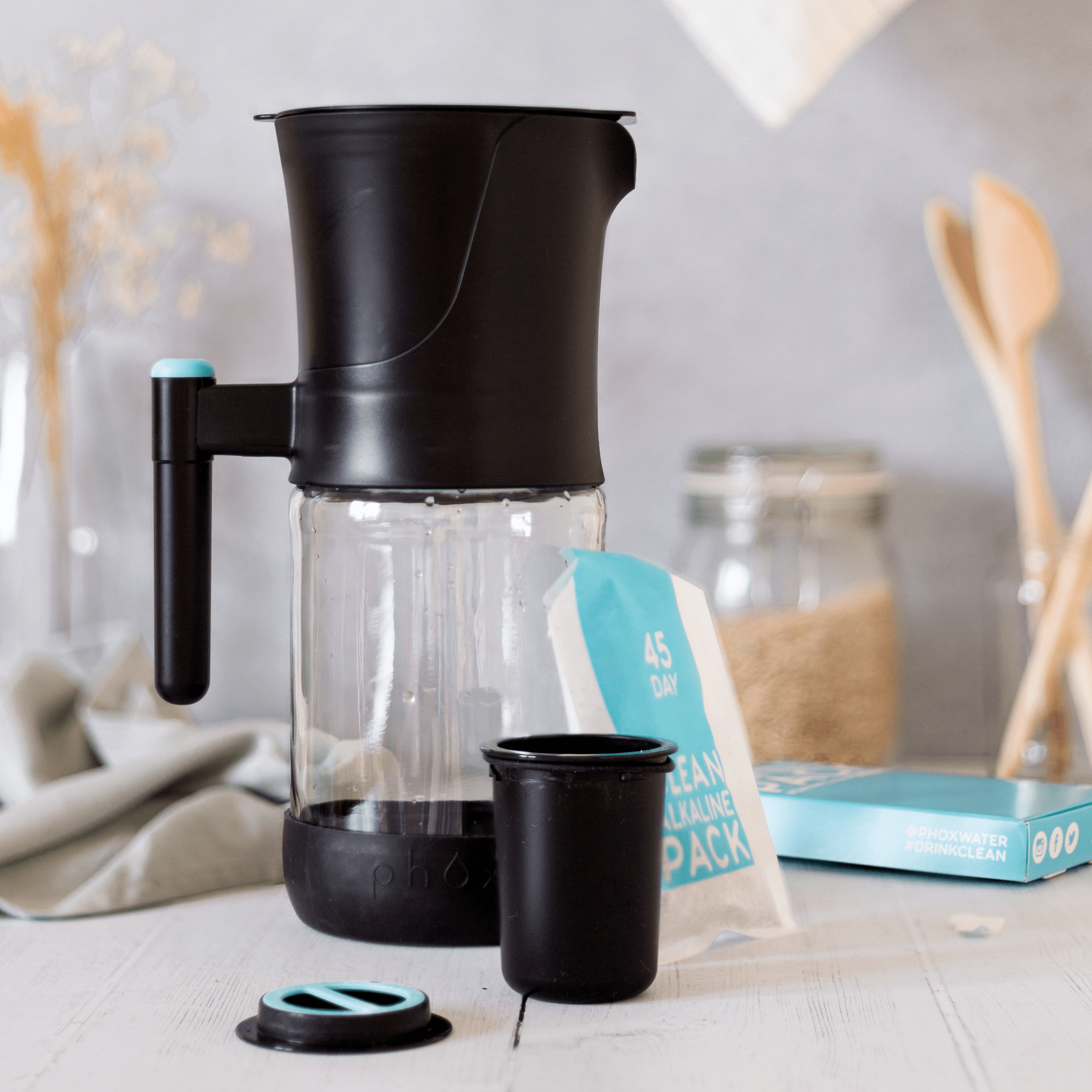Does Drinking Water Help with Hair Growth? 5 Things You Should Know
Do you ever wonder why your hair feels dry and brittle, no matter how many expensive treatments you use? The answer may be simpler than you think – your hydration levels could be affecting your hair health.
When you don’t drink enough water, your scalp dries out, your hair loses elasticity, and shedding increases. Add to that the effects of tap water’s chlorine and mineral build-up, and your hair may be under constant stress. But there’s good news: hydration can transform your hair from the inside out. If you're dealing with shedding, scalp irritation, or breakage, the water you drink might be key to your hair care routine. Here are five key ways staying hydrated helps your hair stay strong and healthy.
1. Water Supports Hair Growth at the Root
Does dehydration affect hair growth? Yes – hair follicles require constant hydration to function properly. Each strand grows from a follicle that depends on water to transport oxygen and nutrients.
When you’re dehydrated, this process slows down, causing:
- Nutrient deficiencies in the follicles weaken hair at the root.
- A sluggish scalp environment makes it harder for new hair to grow.
- An increase in breakage, as dry hair becomes brittle and prone to snapping.
A study from the UK’s National Institute for Health Research showed that proper hydration helps circulation. This allows essential nutrients to reach hair follicles more effectively.
Does Dehydration Cause Hair Loss?
While dehydration does not directly cause baldness, it can worsen hair thinning and slow regrowth cycles. Scalp dryness can lead to inflammation and irritation, further weakening hair strands.
2. Hydration Helps Maintain a Healthy Scalp
Like the rest of your skin, your scalp relies on moisture balance to prevent irritation, dandruff, and excess oil production.
When dehydration occurs:
- The skin dries out and sheds faster, causing flakes and itchiness.
- The scalp compensates by overproducing oil, leading to greasiness and blocked follicles.
- Hair becomes weaker at the root, making it more prone to shedding.
Filtered Water vs. Tap Water for Scalp Health
Many people don’t realise that tap water can actually worsen scalp dryness due to:
- Chlorine, which strips the scalp of natural oils.
- Hard minerals create build-up and make hydration less effective.
Switching to filtered water removes tough chemicals and impurities. This change helps your scalp hold onto moisture more effectively.

3. Drinking More Water Improves Hair Strength & Elasticity
Does your hair constantly feel dry despite using conditioners and oils? Healthline suggests hydration from within may be the missing factor.
Did you know that your hair is composed of 25% water? That means every strand depends on hydration to maintain elasticity and strength.
When you don’t drink enough water, hair becomes:
- Brittle and prone to breakage, as dehydration weakens the protein bonds.
- Frizzy and challenging to manage, as dry hair struggles to hold its natural shape.
- More susceptible to heat damage, as moisture-deprived hair burns more easily under styling tools.
How Filtered Water Helps Retain Hair Strength
Drinking filtered water hydrates your hair with pure water. It’s free from chlorine and minerals that can block moisture absorption. This can make a noticeable difference in the smoothness and resilience of your hair strands.
4. Proper Hydration Prevents Excessive Hair Shedding
Noticing more hair fall than usual? Your hydration levels may be to blame.
Shedding is a natural part of the hair cycle, but dehydration can accelerate hair loss because it:
- Weakens follicles, making strands detach more easily.
- Delays the regrowth cycle, leading to thinning over time.
- Causes scalp dryness, triggering inflammation and irritation.
Drinking enough water helps your body replace lost strands. This reduces shedding and supports a healthier hair cycle.
Pro Tip
If you’re experiencing excessive shedding, track your daily water intake to see if dehydration might be a contributing factor.
5. How Much Water Should You Drink for Hair Health?
The NHS recommends drinking 6-8 glasses (1.2 to 1.5 litres) of water daily to stay hydrated.
However, your needs may vary depending on:
- Activity level: If you exercise frequently, you’ll need more fluids.
- Climate: Hotter weather increases water loss, requiring higher intake.
- Diet: A diet high in salty or processed foods can lead to dehydration.
Hydration Tips for Stronger Hair
- Start your day with a glass of water to jumpstart hydration.
- Set reminders to drink throughout the day if you often forget.
- Incorporate hydrating foods like cucumbers, watermelon, and oranges.
- Our Phox V2 jug holds 1.5 litres of filtered water in its reservoir, making it a great way to track if you’re meeting the NHS hydration recommendation each day.
Did You Know?
If you live in a hard water area, using filtered water for both drinking and hair washing can maximise hydration benefits.
Your hair deserves the best hydration possible – but not all water is created equal. Drinking more water is a great first step. But using water without chlorine and harsh minerals can improve your hair health even more.
Check your local water hardness levels and discover how cleaner, purified hydration can transform your hair and scalp.


